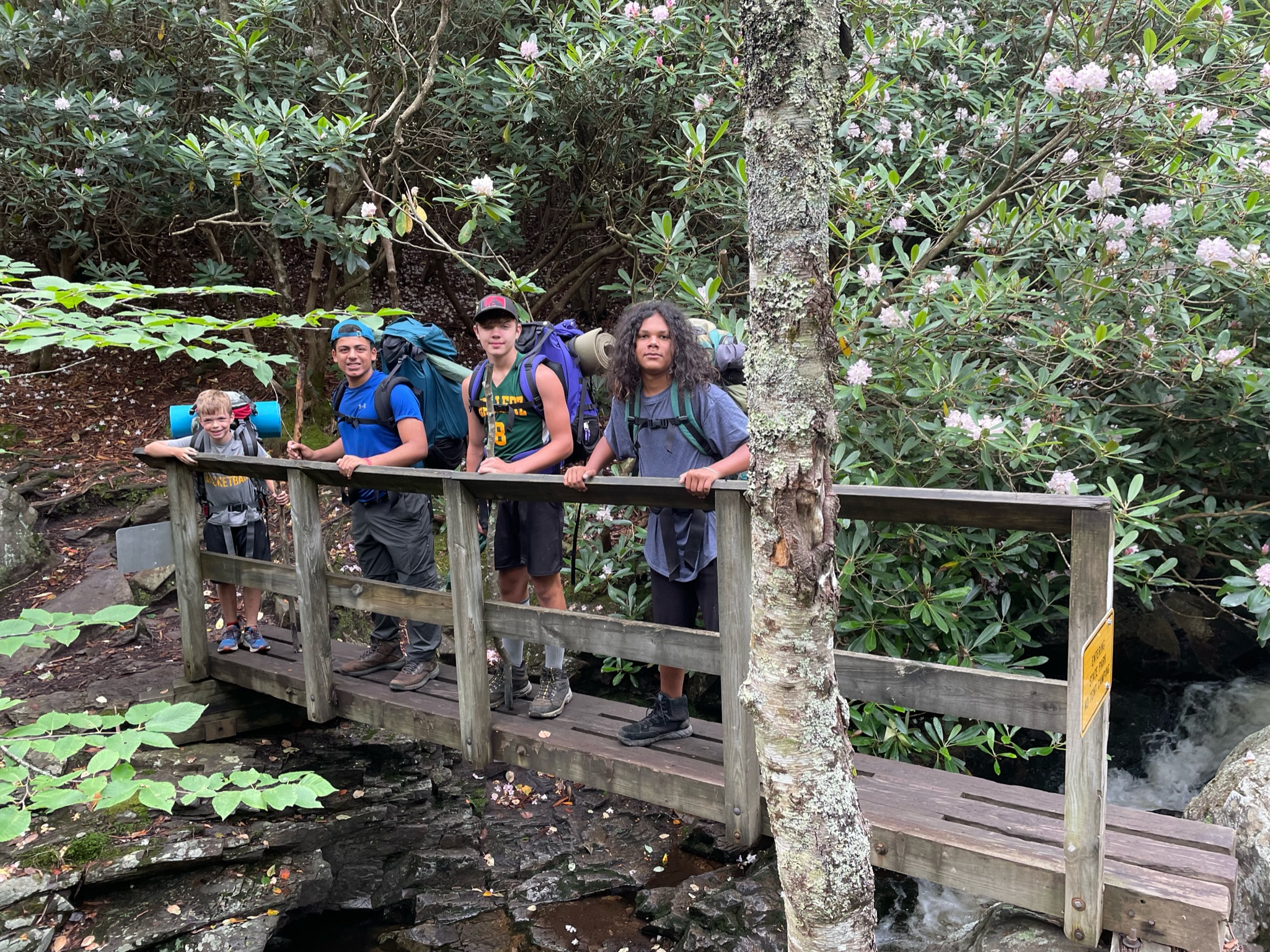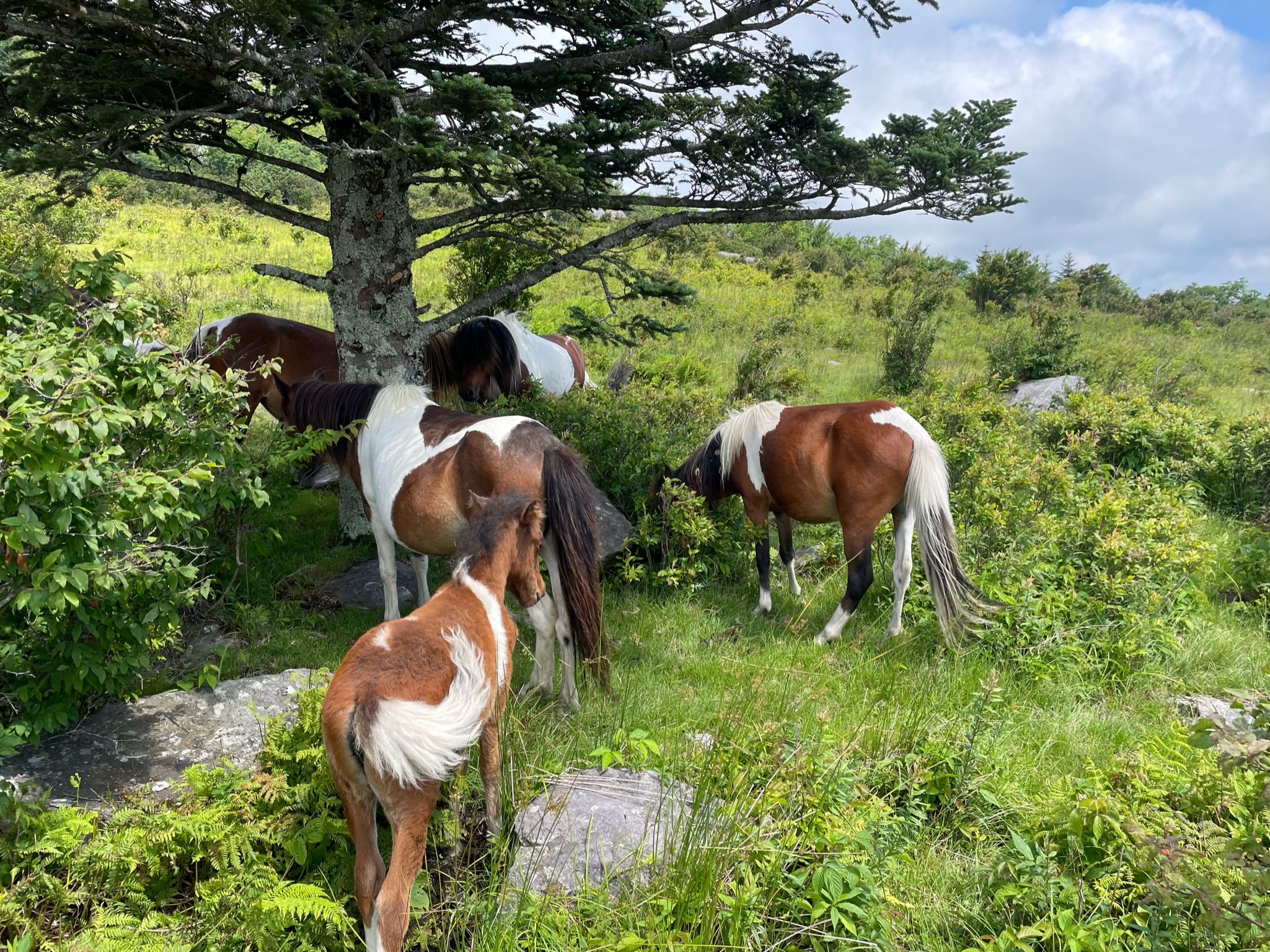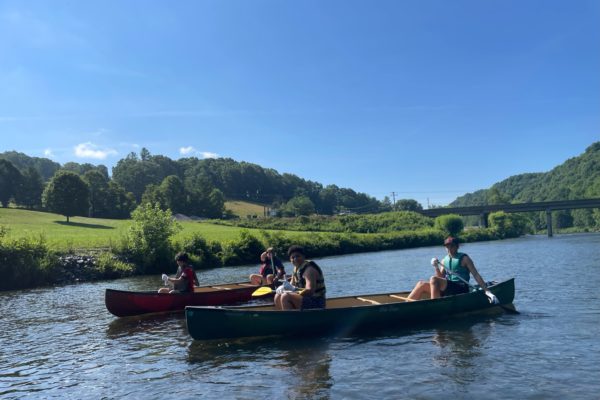Sustainability and conservation are more than just words at Oak Hill Academy. Our new summer session class, Experiential Ecology, demonstrated our hands-approach to both of these topics. A popular offering, the class provided students the chance to learn about fundamental principles of ecology in the classroom—and to then put their learning into practice out in the wild during two trips.
For their first off-campus trip, students enjoyed a three-day adventure, traveling by canoe along the New River. They canoed each day and camped two nights in the New River State Park system. Along the way, they stopped to conduct water tests and collect river insects and study animal life. They also cooked their own meals, built fires, fished, and set up tents. When they weren’t learning these important outdoor skills, they explored the river and woods freely, played card games, told stories, swam, and enjoyed the beautiful scenery.
The weather cooperated perfectly, with just a bit of light rain—not strong enough to put out the campfire! Each evening, a faculty member met the group at the campsite and brought them dinner. The first night Ms. Smith, Ms. De Los Santos, and Mrs. Smith brought quesadillas, rice and beans, and cupcakes. The second night Mr. Bunn brought “Hurricane Stew,” his own creation of chicken, potatoes, onions, and barbecue sauce, along with cobbler.
Just a week later, the group headed out for a two-night backpacking adventure along the Appalachian Trail in Grayson Highlands. They traveled five miles the first day, five miles the second day, and two miles the third day while carrying all of their gear and food. Now with a practiced hand, the students once again set up their tents and cooked meals, this time in the High Country of Virginia. With expansive views and sightings of wild ponies, they identified wildlife, practiced hydration while purifying their own water, and learned about how to enjoy outdoor activities with minimal environmental impact.
Throughout the four-week course, students learned the scientific basis of habitats and examined the best practices in the management of land, water, air and plant and animal species all while enjoying the journey and experiencing nature first-hand. Looking ahead the fall, students can continue their outdoor learning through our Environmental Literacy program, including our environmental club.



